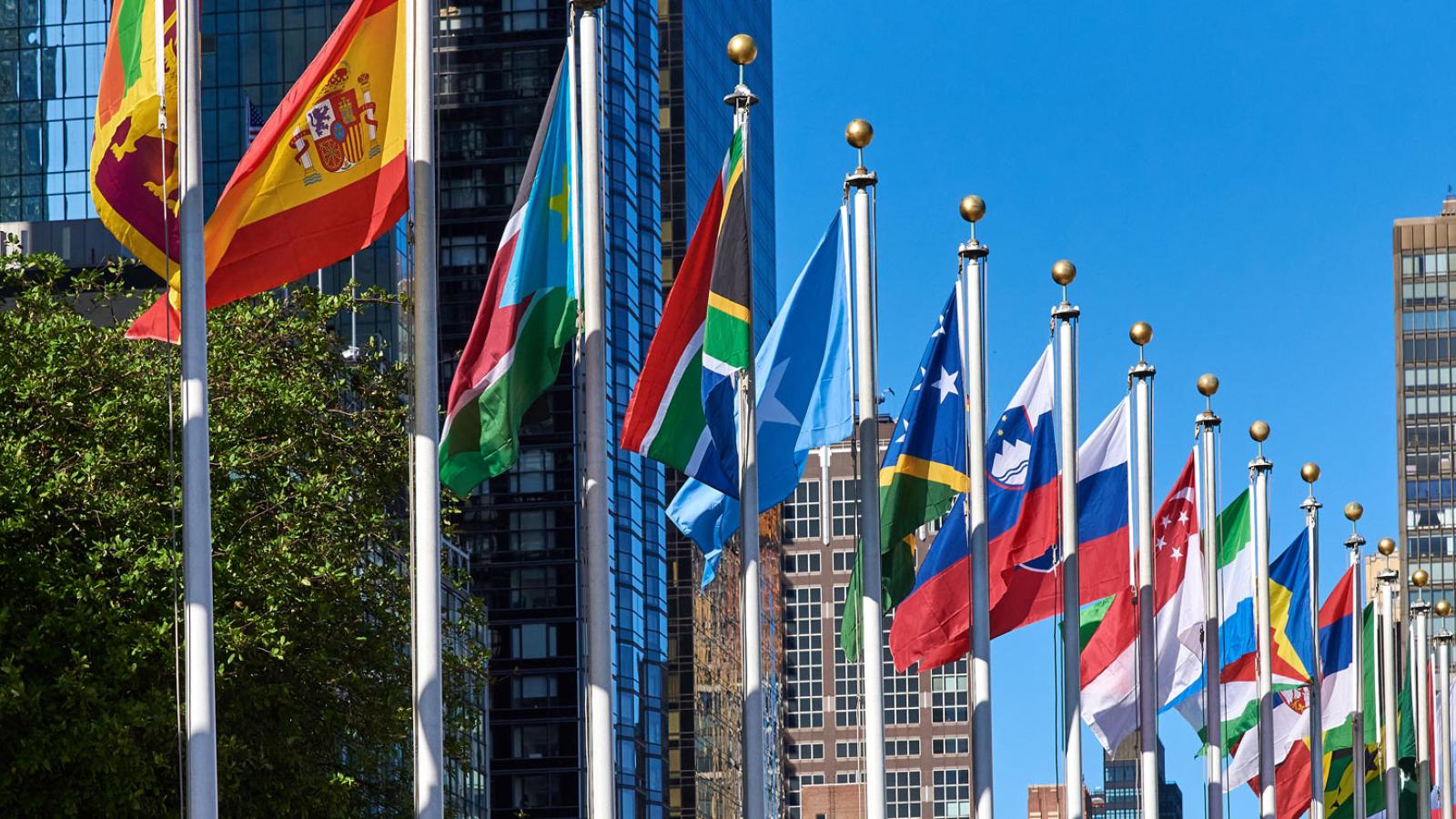The Changing Role of Lawyers in a Time of Environmental Crisis
September 2024
In this video, Pace | Haub Environmental Law Professor Achinthi Vithanage is interviewed by Professor Amanda Kennedy at the Queensland University of Technology (QUT) School of Law about the changing role of lawyers in a time of environmental crisis, discussing what lawyers and law students needs to know about sustainability issues.
The Planetary Future
June 8, 2024
Professor Nicholas A. Robinson joined a panel of eminent scholars and practitioners for The Planetary Future, a webinar on the occasion of the World Environment Day. Organized by the Journal of Environmental Policy and Law (EPL) and IOS Press, the webinar examined how the decisions we make today will determine our future for decades to come as growing scientific evidence underscores the planetary-level environmental crisis at work.
Why Do We Need Green Rights?
April 22, 2024
Professor Nicholas Robinson and Adjunct Professor Victor Tafur were featured on the Webinars Around The Earth series focusing on “Why Do We Need Green Rights?” Produced by the Green Rights Coalition, in partnership with the International Council of Environmental Law (ICEL), the webinar commemorated Earth Day’s 55th Anniversary. “Webinars Around The Earth" is a series of global webinars uniting experts of environmental rights from across the world and distributed in multiple languages.
- Green Rights: “One Code” for One World, Professor Nicholas Robinson
- The Inter-American Court for Human Right, ITLOS, and ICJ Advisory Opinions on Environmental Rights and Climate Change, Adjunct Professor Victor Tafur
Climate Change and the SDG: A Book Launch and Dialogue
March 3, 2021
A discussion of climate change and the SDG's with faculty authors and student interlocutors from Elisabeth Haub School of Law at Pace University, University for Peace (UPEACE), and Jindal Global Law School.
Books
- Fulfilling the Sustainable Development Goals on a Quest for a Sustainable World, Narinder Kakar, Vesselin Popovski, Nicholas A. Robinson.
- Climate Change Law: An Introduction, Karl S. Coplan, Shelby D. Green, Katrina Fischer Kuh, Smita Narula, Karl R. Rábago, Radina Valova.
Knowledge Dialogue: International Cooperation to Prevent Next Pandemic
May 5, 2020
Presentations
- Emergence of zoonotic diseases and environmental changes (PDF)
by Dr. Gwenaël Vourc’h, INRAE Senior researcher, Deputy Head of the unit research Epidemiology of animal and zoonotic diseases (INRA-VetAgro Sup) - COVID-19 and Beyond - Knowns, Unknowns and Needs (PDF)
by Dr. Christian Walzer, Executive Director, Wildlife Health, Wildlife Conservation Society - Attaining ONE HEALTH Through International Environmental Law (PDF)
by Professor Nicholas Robinson, Elisabeth Haub School of Law, Pace University
Artificial Intelligence
April 5, 2020
Professor Nicholas Robinson presented a lecture on Artificial Intelligence in The Hague at Odyssey’s Polaris event for the launch of its 2020 Hackathon held in April in Gronigen, Netherlands. His talk will focus on the use of AI to enable a tree or ecosystem to exercise their legal rights. Rivers currently have legal standing and in the future, AI can play a critical role to enabling the river defend itself and its ecological integrity.
Strengthening Cooperation for International Law
December 10, 2018
Briefing
- Prof. Chikosa Banda - Senior Lecturer in Law, University of Malawi, Chancellor College (Zomba, Malawi) and Member of the IUCN Commission on Environmental Law
- Dr. Nilüfer Oral - Member, U.N. International Law Commission, and Professor, Law Faculty, Istanbul Bilgi University (Turkey), and Director, Center for International Law, National University of Singapore
- Prof. Christina Voigt - Professor, University of Oslo, Department of Public and International Law (Oslo, Norway), and Chair of the Climate Change Specialist Group of the IUCN World Commission on Environmental Law
- Prof. Sergio Ugalde - Professor, University for Peace, Costa Rica, Member International Law Association
- Mr. Lucien Chabason - Senior Advisor to the management of the Institute for Sustainable Development and International Relations (IDDRI)(France)
- Prof. Nicholas A. Robinson, Moderator - Executive Governor, International Council of Environmental Law, and Professor, Elisabeth Haub School of Law at Pace University (New York)
ICEL was founded in 1969 in New Delhi and is the oldest international association of jurists dedicated to the field of environmental law, accredited to ECOSOC, UNEP, IUCN, and other international organizations. ICEL’s briefing of 10 December 2018 on the UN Secretary General’s 2018 Report on Gaps in International Environmental Law, 30 November 2018 (A/73/419). Contact ICEL Representative to the UN, Dr. Victor Tafur at secretariat@icelinternational.org
GCEL’s briefing of 10 December 2018 on the UN Secretary General’s 2018 Report on Gaps in International Environmental Law, 30 November 2018 (A/73/419). Contact GCEL Representative to the UN, Dr. Victor Tafur at secretariat@icelinternational.org
UN Declaration on the Rights of Peasants (UNDROP)
September 28, 2018
Professor Smita Narula played a pivotal role in the adoption of the UN Declaration on the Rights of Peasants (UNDROP), which was formally adopted by the General Assembly of the United Nations in 2018.
“Not only is [UNDROP] about ensuring peasant’s rights, but it’s also upholding peasant agriculture, which has enormous potential to increase agro-biodiversity, to sequester carbon, promote rural livelihoods and support the empowerment of women who are the majority of small holder farmers but who lack access to land and resources and face other forms of violence and discrimination,” says Haub Distinguished Professor of International Law and Human Rights Lawyer and Advocate, Smita Narula. “It’s a historic moment where we recognize our humanity is bound up with the rights of peasants and where we get to come together and have a document that addresses some of the most pressing human rights and environmental challenges of our time and gives us a way to move forward.”
